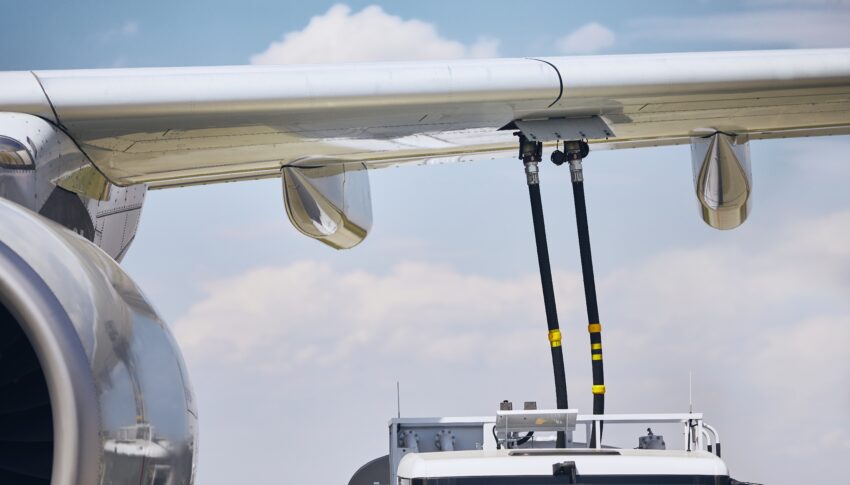Sustainable aviation fuel — SAF — is a critical part of the aviation industry’s aims to decarbonise and reduce emissions. We sat down with Marc Delcourt, co-founder and chief executive officer of French environmental transition fuels specialists Global Bioenergies, to learn more about a new isobutene production process set to be part of the overall SAF source mixture.
Scaling up SAF production with new pathways, processes and plants is one of the biggest challenges for the aviation industry over the rest of this decade. That’s especially true where there are new production methodologies involved, as with Global Bioenergies’ isobutene fermentation process, where the company is proving its biofuel technology in the lower volume cosmetics industry before scaling to SAF.
“It is a very innovative process, so there are many technical challenges,” Delcourt tells us. “We have focused on the short term on the market of cosmetics, which is associated with better economics. As the technology matures, we will target markets associated to larger volumes, such as SAF.”
Indeed, fuel chemistry of the isobutene produced by the process is particularly suitable for SAF.
“Isobutene is one of the main building blocks of the petrochemical industry,” Delcourt explains, and produces isododecane: “a very branched molecule, having perfect cold flow properties: it does not freeze at low temperature. It also burns very well, and we expect that it reduces the emission of particles, which are known to be at the origin of contrails, a contributor to global warming.”
Aviation’s non-direct emissions, including contrails and cloud formation, could be as much as two thirds of its overall climate impact, although this is very much new science. The impact of the new fuel on particulate emissions will be further validated during the engine testing process within the fuel certification programme.
Returning to Global Bioenergies’ isobutene production, Delcourt notes that “it is a fermentation process: we have engineered bacteria so they convert the sugar given to it directly into isobutene. Isobutene being a gas, it volatilises spontaneously from the fermentation broth, leaving behind most of the impurities and thus simplifying the purification process.”
Source materials — feedstocks — are a critical question for sustainable aviation fuels, especially when it comes to ensuring that fuel does not take over either potential food oil production or arable land that could be used for food production.
“We have tested many different types of feedstocks: glucose from wheat, sucrose for sugar beets — and several types of second generation sugars, such as the sugars extracted from wheat straw or wood chips,” Delcourt says. “It works well with all of these kinds of sugars. In Europe, only second generation sugars can be used for regulatory reasons. Their production is only starting now, with a few plants up and running.”
Regulatory and certification hurdles have largely been overcome for the new isobutene production method, but scaling and feedstock supply reliability to achieve the volumes required for aviation are still challenges.
“We just received the ASTM certification, which means that we can sell our products to airlines,” Delcourt explains. But we only have a small plant, well suited for the cosmetics [industry], but far too expensive for SAF. We plan to build and operate in the future a large plant focused on SAF production. More R&D is necessary to improve the performance of the process. We also need a stronger upstream production of second generation sugars.”
More widely, Delcourt says, “the present market of SAF is very small: only about 200 kilotons in 2023 — less than 0.1% of the whole jet fuel market. The only technology used for now is based on waste cooking oil. In 2025, the market will increase about tenfold, and will still be fully addressed by waste cooking oil products. But this stream will then saturate, and new technologies will be needed for the next level, which will happen in 2030.”
By then, Global Bioenergies expects, this new isobutene pathway will be ready to start producing at scale, contributing to the wider mix of SAF sources to be dropped directly in to jet fuel supplies.
Published 30 November 2023




